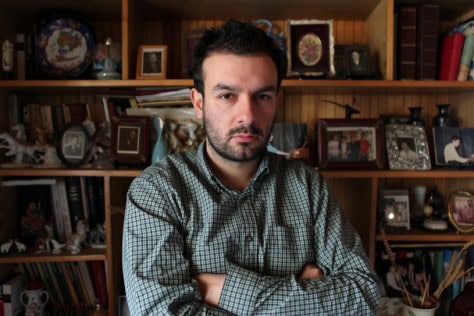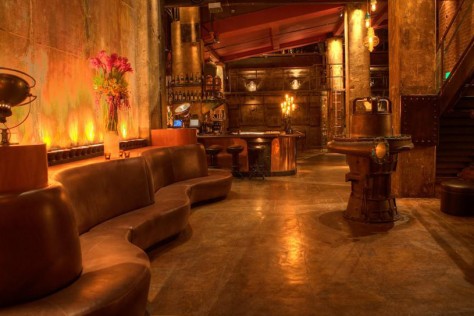In Trier's new film, Reprise, he directs a cast of newcomers in this first feature that naturally and kinetically tells the story of youth’s hope through best friends Philip and Erik’s pursuit for literary stardom, struggle with sanity and negotiations of relationships, dreams and reality in Oslo.
How did Reprise come about?
The co-writer and I had done a lot of short films together and we were going to write a feature. We got lost along the way while writing some cold war-thriller-conceptual thing. A lot of little antidotes from our past came up. Stuff that we didn’t dare believe could turn into a proper movie. Little curiosities Were you just writing scenes and then discovered the story of the film in them? Yeah, we never sat down and said, ‘what’s the plot line?’ There are all these script gurus and all these people just wanting to do genre movies. There’s a lot of art in that, I’m not undermining that, but there is also space where we need to be more experimental. Particularly when making a film about people in their early twenties; it’s really easy to be condescending about them and expect the audience of that age to be kind of stupid and only want popcorn movies. There are actually a lot of people that are curious and open and can also be an interesting audience. Yeah, this film definitely gives the audience that credit in that there is a trust and subtly. I’m certainly drawn to subtlety rather than the explicated. Some people find that annoying, they want a clear conflict. Making a film about Norwegian guys who are trying to stay afloat with the idea of who they are while everything is falling apart around them in terms of their friendship and ambitions, I think it was the right choice to not have them address the core problem, have them avoid conflict and me as a filmmaker, trying to focus in and show those gaps where they are not communicating. That lack of communication is something I focus on while the characters are desperately pretending everything is fine. I find that more touching, like people crying in films, seeing someone desperately trying not to cry gets to me. THAT really makes me emotional rather than explicit crying. Sometimes you want there to be space left for the audience to interpret and to get drawn in. It’s one of the nicest shot films I’ve seen in a while. The light is beautiful in it but it also has a young energy that doesn’t make it feel staged. I worked very closely with Jakob Ihre, the DP. We went to film school together. He’s really someone I share cinematic taste with a lot. There are almost like a band of people: my co-writer, my editor, my DP. We’re constantly working together on various projects. What I like about Jakob in particular, as you were mentioning, is his ability to combine high and low culture. We can talk about Dutch painting and Tchaikovsky in one moment and the next moment we’re looking at some magazine or an ad. Everything can be inspiring in some way. It doesn’t feel like a traditionally Norwegian film at all, in that it’s not super stoic and a little more natural. Is this realism something you set out to achieve? The thing in cinema is people say that it just needs to be realistic and spontaneous and it will translate as real. I actually think it takes a lot of work to create the detailed, realistic representation of something. If you just put up a camera, you don’t catch a state of mind, you just see something random. To get people into the thought process of characters takes a lot of contrived thought to arrive at hopefully something that seems real or that plays and has a life and complexity to it. Complexity comes from construct. You mentioned having made a lot of short films, how long have you been making them? I come from a film-family background. My grandfather was film director in the 50’s and 60’s and made a lot of experimental [and] also narrative films. He was this very sort of left-wing, political character in Norway. It’s weird, I admire what he did formally but the content is so formal and explicitly political. I learned something by watching his films about the formal approach and I always had cameras around. I always filmed as a kid and did skateboarding videos when I was in my teens. So did you have the big fisheye on your teen skate videos? Of course I did. I was skating next to my buddies with the fisheye all day. No wonder my back hurts these days! That’s why I shoot with a long lens now.
 Q&A with Larry Gus
Q&A with Larry Gus We Own the Night: The Edison
We Own the Night: The Edison
No Comments